Attack Against US Forces In Jordan Caught Iran 'Off Guard'
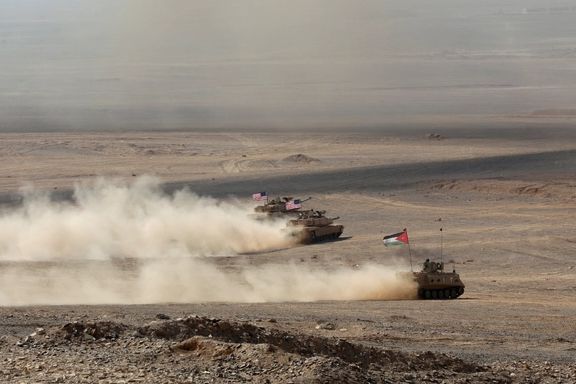
Citing multiple US intelligence sources, CNN reported that the Iranian leadership was “surprised” by the recent deadly attack against US forces in Jordan.

Citing multiple US intelligence sources, CNN reported that the Iranian leadership was “surprised” by the recent deadly attack against US forces in Jordan.
According to the report, Iran is now concerned about actions carried out by its proxies in the region. The Islamic Resistance in Iraq, responsible for the attack Sunday which killed three US troops and left 47 wounded, has since said they are halting actions as Tehran grows ever more nervous about rising tensions.
CNN further added that Tehran is particularly anxious about Yemeni Houthis’ attacks on commercial vessels in the Red Sea as they potentially endanger the economic interests of Iran’s allies China and India.
“There is no sense that Tehran’s growing wariness is likely to change its broader strategy of supporting proxy attacks on US and Western targets - although it could signal adjustments around the margins,” CNN quoted US officials as warning.
Following the attack Sunday, US President Joe Biden has been under increasing pressure to retaliate against Iran which, through its proxies, has launched more than 160 attacks on the US since October, in the wake of the Gaza war. The US has been targeted for its support of Israel's right to defend itself in the wake of October 7's Iran-backed Hamas invasion.
On Wednesday, over 60 US lawmakers urged stricter enforcement of Iran’s oil sanctions. In a letter addressed to Biden, House members from both parties called for “immediate action” to prevent the Iranian regime from obtaining “additional financial resources that it can use to continue supporting terrorism.”
Biden and Secretary of Defense Lloyd Austin have vowed to hold accountable “all” sides who had a part in the deadly Jordan incident.
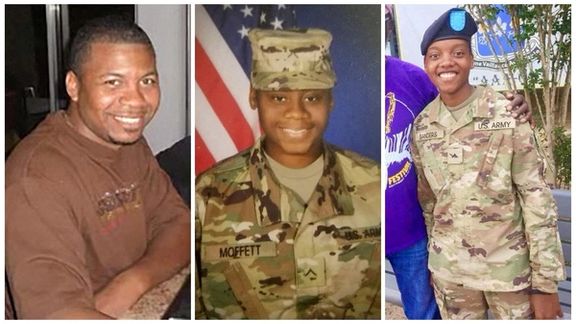
The Biden administration is gearing up for a potential retaliation campaign against Iran after US troops were killed by Iran-backed militia on Sunday.
According to US officials speaking to NBC News, specific targets for retaliation have not yet been finalized, but Iranian interests beyond Iran's borders are under consideration. It could last for several weeks, they said.
The decision to retaliate comes after Iran-backed militants killed three US service members at a base in Jordan on Sunday, in addition to more than 160 attacks on US targets in the Middle East since the onset of the Gaza war in October. Iran-back militia have targeted the US for its support of Israel and its right to defence following the October 7 invasion by Iran-backed Hamas, which saw over 1,200 people murdered and 250 at least taken hostage.
The planned offensive is “expected to include Iranian targets outside Iran, and the campaign will involve both strikes and cyber operations,” added the officials.
President Biden stated on Tuesday that he had decided on the country's response to the proxy drone attack but refrained from disclosing further details. On Monday, US Secretary of State Antony Blinken also emphasized that the country's approach to responding to the attack would be "multi-tiered."
In Tehran, the government reiterated it would not tolerate attacks on its territory. State media quoted Iran's foreign minister, Hossein Amir-Abdollahian, as telling a cabinet meeting: "The US has to stop its threats and focus on a political solution."
Iran's United Nations envoy Amir Saeid Iravani, also said on Wednesday that Tehran would respond "decisively" to any attack on its territory, its interests, or Iranian nationals outside its borders, as reported by Reuters.
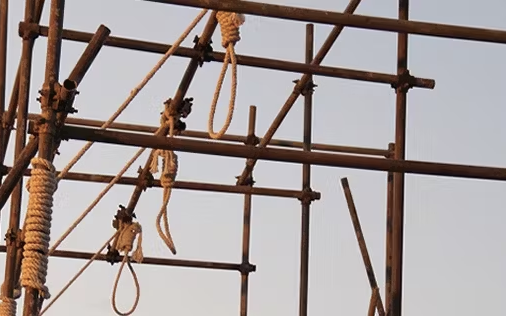
The Australian Department of Foreign Affairs and Trade has criticized the increase in executions in Iran which is at record levels amid ongoing crackdowns on dissent.
"The Australian government is deeply disturbed by Iran’s extensive and persistent use of the death penalty, including against ethnic minorities and protesters," the department said in a statement on Thursday in response to inquiries from Iran International.
Emphasizing its opposition to the death penalty, the Australian Department of Foreign Affairs urged Tehran to cease executions immediately.
A notable increase in executions has been observed in Iran, with the Islamic Republic carrying out 90 executions between December 22 and January 21. According to reports from UN experts, in 2023 alone, Iran executed a minimum of 834 individuals, eight of whom were reportedly associated with nationwide protests.
Additionally, Canberra reiterated its stance against Iran's destabilizing activities in the Middle East and beyond, including its support for armed proxies.
“Australia remains concerned with Iran’s destabilizing behavior, including its support for armed proxies in the Middle East. We condemn the recent drone attack by Iran-backed militants on a US base in Jordan which killed three US troops and wounded dozens more. Australia also unreservedly condemns Houthi attacks in the Red Sea, which constitute a threat to navigational rights and freedoms, international commerce, and maritime security.”
Iran and its regional allies have escalated their activities against Israel and the US since October when war was sparked by Iran-backed Hamas's invasion of Israel, killing 1,200 mostly civilians in a single day.
Over the past nearly four months, militias supported by Iran in Iraq and Syria have carried out more than 160 attacks on US facilities and personnel in the region.
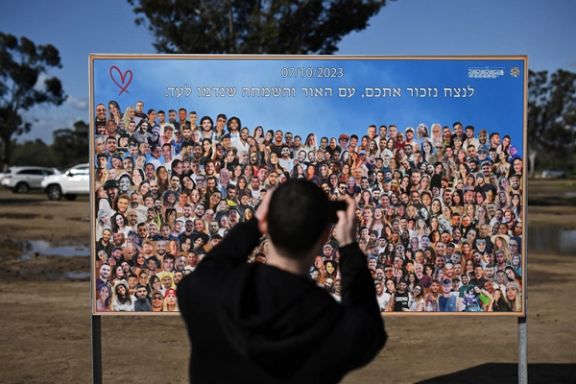
A lawsuit has been filed in New York by three families of October 7 victims against Iran, Syria and Binance, the world’s largest cryptocurrency exchange.
According to the Semafor news website, the claimants include the Raanan family who saw Judith Raanan and her daughter Natalie kidnapped to the Gaza Strip. They were both released under a prisoner swap deal between Hamas and Israel.
Two other claimants are the families of Daniel Levi Ludmir and Itay Glisko, both murdered by Hamas militants. Ludmir was a 34-year-old physician who was killed at Kibbutz Be’eri on October 7 when he was tending to the injured. Glisko, a 20-year-old sergeant of the Israeli army, lost his life on October 8 during clashes with Palestinian militants.
According to Semafor, the victims’ families hold Tehran and Damascus responsible for “arming and financing Hamas” and “helping to orchestrate” the October 7 offensive.
Binance and its former chief executive Changpeng Zhao have also been accused of “allowing Hamas to use the cryptocurrency platform to conduct financial transactions and make payments.”
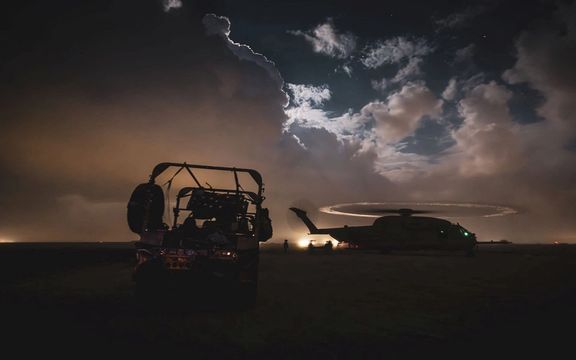
In November, the US Department of Justice, Treasury, and the Commodity Futures Trading Commission imposed a record $4.4 billion fine on Binance on allegations that it enabled the laundering of substantial sums of illicit money worldwide.
US Treasury Secretary Janet Yellen stated, “Binance turned a blind eye to its legal obligations in the pursuit of profit. Its wilful failures allowed money to flow to terrorists, cybercriminals, and child abusers through its platform.”
Meanwhile, in a second case, NBC News reported that 67 US citizens filed a $1 billion federal lawsuit against Iran over its role in Hamas’s onslaught on Israel.
Some of those who were injured or taken hostage by Hamas militants as well as the families of the murdered are among the plaintiffs in the suit which was filed in US District Court for the District of Columbia.
“Iran bears direct responsibility for the October 7 attacks. Indeed, that point is essentially undisputed. The Iranian regime has openly flaunted its motive for aiding the horrors,” read the lawsuit.
The plaintiffs called Iran the “sworn enemy of Israel and the United States,” further adding that the regime “masterminded and funded” Hamas’ rampage in an attempt to disrupt the normalization talks between Israel and Saudi Arabia.
The lawsuits appear to be the first legal attempts to hold Tehran accountable for October 7's attacks which saw at least 1,200 killed, including at least 30 US citizens, and 250 more taken hostage.
It was the single most deadly day for Jews since the Holocaust, with hostages hailing from around 40 nationalities including Thai, Russian, British and German.
Though Iran has officially denied involvement in the massacre, Tehran held celebrations just hours after the atrocities with huge posters around the city, suggesting foreknowledge of the horrors which unfolded after thousands of Hamas militants invaded Israel by air, land and sea.
Leaders as high up as Supreme Leader Ali Khamenei had met with Hamas leaders at an increasing pace last year suggesting the highest level of coordination with the regime in the attacks which sparked a region-wide escalation.
Iran-backed proxies in Lebanon, Syria, Iraq and Yemen have pledged solidarity with Hamas after Israel’s relentless retaliation has left devastation in the strip, targeting both US and Israeli targets as well as international shipping in the Red Sea in a bid to force Israel into a ceasefire.
US intelligence has shown that on average, Tehran has funded Hamas $100 million annually in addition to provision of weaponry and training.
The IRGC’s top commander Hossein Salami is one of the many who have denied Iran’s involvement in the attack and claimed that “it was designed and implemented by Palestinians and no decision was made outside of Palestine.”
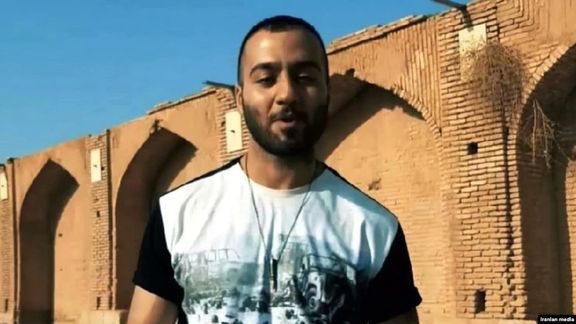
The International Federation of Musicians, alongside three other music organizations, has issued a joint statement demanding the immediate release of Iranian rapper Toomaj Salehi.
Salehi's recent re-arrest has sparked condemnation from civil society organizations, denouncing the suppression of artistic expression in Iran.
Salehi, who was previously imprisoned for one year and 21 days, with 252 days spent in solitary confinement, was released on bail on November 18th. However, he was detained again just 12 days later after releasing a video detailing the torture he endured while in prison. In the video, Salehi accused prison authorities and government-affiliated media of misconduct.
“We would like to remind the Iranian Government and State about their international obligations of respecting international conventions, and we refer to a previous condemnation by UN Special Rapporteurs as well as UNESCO when Iran has violated artists rights to freedom of expression,” reads the statement shared by Salehi’s X account.
“Iran has an obligation to respect freedom of expression which includes that right to seek, receive and impart information and ideas, including through art and culture."
Salehi, known for his protest rap songs and support for the Woman, Life, Freedom protests, was first arrested in November 2022 and has since become a global face of the dissident movement in Iran.
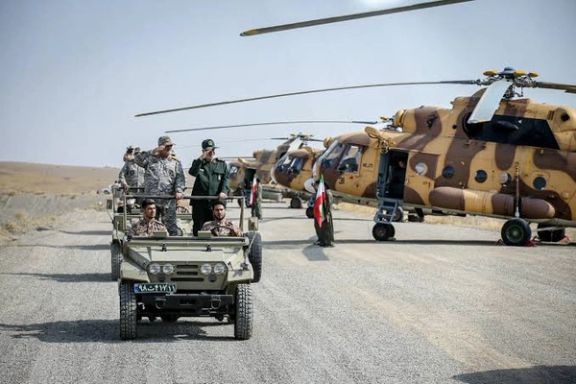
Iran's IRGC has reduced the presence of its senior officers in Syria due to a spate of deadly Israeli strikes and will rely more on its militia proxies, Reuters quoted five sources as saying.
The Guards have suffered one of their most bruising spells in Syria since arriving a decade ago to aid President Bashar al-Assad in the Syrian war. Since December, Israeli strikes have killed more than half a dozen of their members, among them one of the Guards' top intelligence generals.
As hardliners in Tehran demand retaliation, Iran's decision to pull out senior officers is driven partly by its aversion to being sucked directly into a conflict bubbling across the Middle East, three sources told Reuters.
Iran International reported last week that some in Tehran suspect an Israeli infiltration in tracking and pinpointing the whereabouts of senior IRGC officers in Syria.
Moreover, after a January drone attack by an Iranian-backed Iraqi group in Jordan that killed three US soldiers, Washington has vowed to retaliate against unknown targets, that could include IRGC assets in Syria.
While the sources said Iran has no intention of quitting Syria - a key part of Tehran's sphere of influence - the rethink underscores how the consequences of the war ignited by Palestinian militant group Hamas' Oct. 7 attack on Israel are unfolding in the region.
Iran, a backer of Hamas, has sought to stay out of the conflict itself even as its proxy groups that have entered the fray from Lebanon, Yemen, Iraq and Syria - the so-called "Axis of Resistance" have intensified attacks on US and Israeli targets, as well as international maritime traffic in the Red Sea.
One of the sources - a senior regional security official briefed by Tehran - said senior Iranian commanders had left Syria along with dozens of mid-ranking officers, describing it as a downsizing of the presence.
The source did not say how many Iranians had left and Reuters was unable independently to determine that.
Iran has sent thousands of fighters to Syria during the Syrian war. While these have included members of the Guards, officially serving in the role of advisors, the bulk have been Shi'ite militiamen from all over the region, specially from Afghanistan.
Three of the sources said the Guards would manage Syrian operations remotely, with help from ally Hezbollah.
Another source, a regional official close to Iran, told Reuters those still in Syria had left their offices and were staying out of sight. "The Iranians won't abandon Syria, but they reduced their presence and movements to the greatest extent."
The sources said the changes so far had not had an impact on operations. The downsizing would "help Tehran to avoid being pulled into the Israel-Gaza war," one of the sources, an Iranian, said.
'INTELLIGENCE BREACH'
In one of Israeli attacks, on Jan. 20, five members of the Guards were killed, Iranian state media reported, including a general who ran intelligence for the Quds Force, which is responsible for the Guards' overseas operations. The strike flattened a Damascus building.
Another, on Dec. 25 outside Damascus, killed a senior Guards adviser responsible for coordinating between Syria and Iran. Iran's Supreme Leader Ayatollah Ali Khamenei led prayers at his funeral.
Three of the sources told Reuters the Guards had raised concerns with Syrian authorities that information leaks from within the Syrian security forces played a part in the recent lethal strikes.
Another source familiar with Iranian operations in Syria said the precise Israeli strikes had prompted the Guards to relocate operational sites and officers' residences, amidst concerns of an "intelligence breach".
The prolonged presence of Iranian forces in Syria has cemented a zone of Iranian influence stretching through Iraq, Syria and Lebanon to the Mediterranean, creating a considerable threat to Israel and other countries.
Three of the sources said the Guards were once again recruiting Shi'ite fighters from Afghanistan and Pakistan to deploy to Syria, echoing earlier phases of the war when Shi'ite militias played a part in turning the tide of the conflict.
The regional official close to Iran said the Guards were drawing more on Syrian Shi'ite militias.
Gregory Brew, an analyst with Eurasia group, a political risk consultancy, told Reuters the failure to protect Iranian commanders had "clearly undermined Iran's position" but Tehran was unlikely to end its commitment to Syria to preserving its role in Syria.